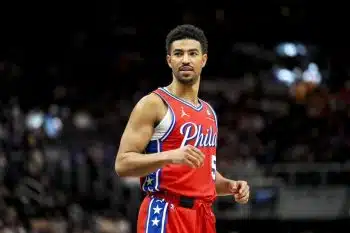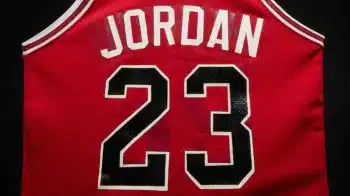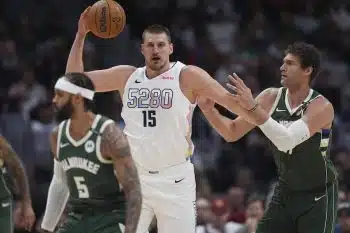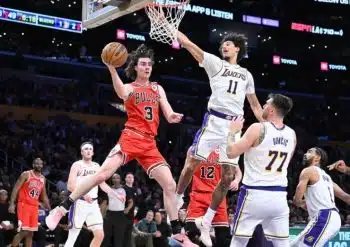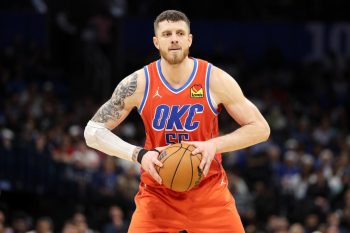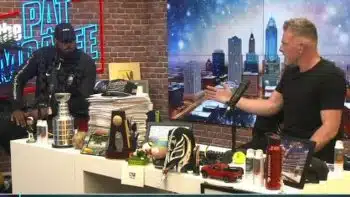NBA
NBA PM: Awfully Quiet On The NBA Trade Front
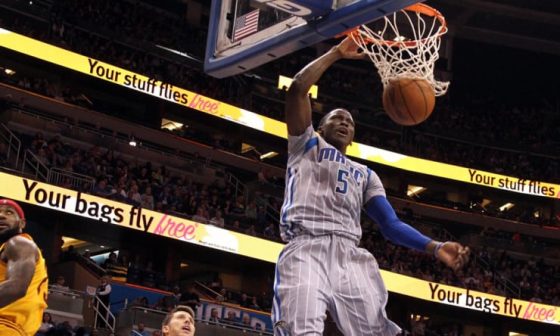
Why So Quiet?
Normally when the NBA calendar flips to the new year, trade talks and rumors heat up. However, this season the amount of trade chatter has been surprisingly low and the number of consummated trades is equally low.
So far since training camp, there have been two trades: Ish Smith was traded to Philadelphia by New Orleans in exchange for two second round draft picks; while Mario Chalmers and James Ennis were traded by Miami to Memphis for Beno Udrih and Jarnell Stokes.
By this time last season, there had already been six transactions in total involving 21 players or player draft rights.
It’s been a quiet year in the NBA on the transaction front and there are a couple of big reasons for it.
The biggest reason is that so many teams are right there in terms of being in the playoff picture. While some teams might need one more player to get over the hump, many of the teams (especially in the East) are fearful of changing something that’s working because just as a new face could move a team forward, it could also move a team backward and there does not seem to be as much interest in change as in previous years.
The other big reason is the cap space bonanza teams are facing in July. In case you have been living in a cave for the last year, the NBA inked a massive $24 billion media rights deal along with a whopping $1 billion apparel deal that’s going to kick in next season and cause the salary cap in July to swell to what could be north of $90 million. That kind of bump would move virtually every team to within striking distance of free agency and in some cases, some teams could have $60 million or more to spend this summer.
Predicting actual cap space this far out is a complex concept – our own Eric Pincus spends far too much time playing with the scenarios – but to sort of generalize the possibilities, you can look at what each team currently has in guaranteed contract money for next year to see why some teams are opting to sit out the trade market in favor of preserving future cap space:
| Team | 2016-17 | Max Space |
| Los Angeles Lakers | $23,126,154 | $66,873,846 |
| Philadelphia 76ers | $24,518,361 | $65,481,639 |
| Dallas Mavericks | $28,212,230 | $61,787,770 |
| Boston Celtics | $33,971,629 | $56,028,371 |
| Washington Wizards | $36,858,521 | $53,141,479 |
| Detroit Pistons | $42,425,365 | $47,574,635 |
| Portland Trail Blazers | $44,468,987 | $45,531,013 |
| Brooklyn Nets | $45,379,214 | $44,620,786 |
| Houston Rockets | $45,598,308 | $44,401,692 |
| Charlotte Hornets | $45,908,700 | $44,091,300 |
| Memphis Grizzlies | $47,493,858 | $42,506,142 |
| Miami Heat | $48,008,675 | $41,991,325 |
| Atlanta Hawks | $52,717,353 | $37,282,647 |
| Denver Nuggets | $54,613,156 | $35,386,844 |
| New York Knicks | $55,366,567 | $34,633,433 |
| Utah Jazz | $56,560,760 | $33,439,240 |
| Indiana Pacers | $57,230,006 | $32,769,994 |
| Phoenix Suns | $59,191,480 | $30,808,520 |
| Milwaukee Bucks | $59,711,631 | $30,288,369 |
| Minnesota Timberwolves | $60,264,642 | $29,735,358 |
| Sacramento Kings | $60,424,376 | $29,575,624 |
| Orlando Magic | $60,534,811 | $29,465,189 |
| New Orleans Pelicans | $63,851,448 | $26,148,552 |
| Chicago Bulls | $64,750,458 | $25,249,542 |
| Oklahoma City Thunder | $65,906,301 | $24,093,699 |
| Toronto Raptors | $69,909,899 | $20,090,101 |
| San Antonio Spurs | $70,429,409 | $19,570,591 |
| Golden State Warriors | $74,751,658 | $15,248,342 |
| Los Angeles Clippers | $76,290,361 | $13,709,639 |
| Cleveland Cavaliers | $76,641,961 | $13,358,039 |
Here is a detailed break down of every NBA Team’s Salary Situation.
Now, mind you, the above table does not account for a lot of items like cap holds for draft picks, salary cap holds for pending free agents or LeBron James re-signing (and for how much).
This table simply points out what’s currently completely guaranteed. Some teams could trade away contracts before the deadline and increase their number or they could opt to pick-up contract options that would decrease their number.
So the chart isn’t about predicting what a team will actually end up with, it illustrates that virtually every team in the NBA has a few million reasons not to mess with their roster, especially if it adds contract money into next season.
There have been many that wonder why Suns forward Markieff Morris has not been traded yet. The truth is, beyond his flaws as a player or even his off-the-court issues, he’s owed $7.4 million next season and for some teams that might mean the difference between having a viable maximum salary offer in free agency and not having enough room to get a meeting.
Is Morris currently worth missing out on the chance to pitch Kevin Durant?
As the February 18 NBA trade deadline gets ever so closer, there is a growing sense that unless teams are offered home-run deals, the appeal of trading for players that have contract money owed to them in 2016 is considerably low. Some of those players might become attractive in the offseason when teams swing and miss on bigger fish type of guys, but today the appeal of taking on 2016 salary is pretty low even for teams with pending free agents that could walk away for nothing after the season.
The appeal of the possible space and the players a team could obtain with it is far more desirable than what’s being shopped around.
The Magic And Victor Oladipo
If you have been following the Orlando Magic this season, you may have noticed there is an odd thing playing out when it comes to their process. The Magic spent high level draft picks on players like guard Victor Oladipo (No. 2 overall) and forward Aaron Gordon (No. 4 overall) that in a perfect world would not start in Orlando.
How is it that the second pick and arguably the best player in the top 10 of his draft class isn’t a starter? Or that an all-energy, all-hustle guy like Gordon can’t get meaningful minutes on the floor? Some of it has to do with how the Magic got here and some of it has to do with where the Magic want to go as an organization.
When the Magic decided to trade away Dwight Howard, the goal was to tear the team down and rebuild around a young core of similar aged players who could learn and grow together. Oladipo was believed to be a big part of that future and still very well could be.
Oladipo was anointed as the future of the franchise and he was given a very wide berth to figure things out. He was exciting to watch. He blossomed into an incredible defensive presence and everything seemed on course for Victor to sign a massive contract in July of 2016 and take his place as the guy in Orlando.
Then the Magic changed course.
The Magic opted to fire head coach Jacque Vaughn last year as it was clear that the team was stagnating and not progressing. Senior management and ownership desperately wanted a proven operator and tapped Scott Skiles to be the head coach.
Skiles was given a very clear directive: Win basketball games.
While this was good for the fans, better for the team and excellent for some of the more established players like center Nikola Vucevic and forward Tobias Harris, it did not line up with the original plans for Oladipo or Gordon.
Oladipo, while posting some solid numbers this season, has struggled to shoot the ball efficiently and lost his starter job to guard Evan Fournier, who emerged as an electric and efficient scorer this year. The other part of the Oladipo equation was that when paired with sophomore guard Elfrid Payton, they combined to produce some of the worst combined analytics of any backcourt tandem in the NBA.
Fournier was flourishing, the back court was struggling and Skiles wanted to win.
Oladipo was sent to the bench, which allowed a rotation shift that brought Channing Frye into the starting rotation, moved Harris to his natural position at the three and gave Fournier the full time shooting guard spot, which worked much better with Payton.
Oladipo was now the spark from the bench, he was the defensive hammer Skiles could wield when needed and he was allowed much more freedom from the bench. Things for the Magic improved. Oladipo could play more of his game and the Magic could get a more effective starting unit.
The problem is this was supposed to be Oladipo’s year. He was supposed to post huge numbers, cement himself into the All-Star conversation and land his huge maximum contract in July. Today, that does not seem remotely plausible.
The Magic have not soured on Oladipo. They simply have backed up the process. That’s frustrating for Oladipo because the Magic are trying to reel him back in a little and win games in the process.
That same process has not created much of an opportunity for Gordon either.
Both were supposed to be the cornerstones of the future, but in a win-right-now situation, neither are nearly ready or developed enough to play at the level or consistency that a coach like Skiles demands and expects.
There are rules, systems, processes and expectations in Orlando now and those who execute them play. Those who don’t execute, don’t play.
That’s not either players’ fault. The game plan in Orlando changed.
The Magic want to be in the postseason this year, which means young guys who have a few more things to learn are going to take a back seat. That doesn’t mean the franchise has abandoned their youth, it simply means letting them figure things out on the floor is no longer going to happen – at least not as freely as it did during the obvious rebuilding years.
The Magic have a role for Oladipo. He’ll be their sixth man this year and they’ll look at things in the offseason. For those that believe Oladipo is somehow obtainable in trade, he really is not. It would take a monster of a transaction to get Orlando to even seriously talk about it.
Fournier is a pending free agent and the Magic have no idea what it will cost to keep him beyond this season. The Magic also are not sold that keeping Fournier at an inflated price tag is the best use of the free agent money. They played a similar hand with Harris last summer, trying to land Atlanta’s Paul Millsap before inking Harris to his long-term deal. The same is expected this summer.
The Magic will have the option to restrict Fournier’s free agency and see if there is a better place to put what could be $14-$16 million per season. If they can’t find a better option, they can always sign or match Fournier’s offers.
If they choose to pass on Fournier altogether, they still have Oladipo, who will be one more season along in his career and maybe a more reliable shooter after another offseason of work.
Nothing between the Magic and Oladipo has really changed, except the role they need him to play right now. He is still viewed a vital part to the Magic’s future and a key reason the Magic have won as many games as they have this season.
What’s happened in Orlando is they have backed up the program for the young guys a little and shifted their development into a more traditional off-the-court, work-with-the-coaches process that winning teams use to develop players.
That might seem a little foreign considering how bad Orlando has been for the last few years, but the name of the game has changed. The Magic are trying to win something this year and that means the young guys have to take a bit of step back until they can demonstrate consistently that they can run the program as scripted by the coaches. That’s not always easy to accept for young players, but that’s how it is when you are trying to be a playoff team.
Some may disagree with that plan, but the truth of the matter is the Magic are not going to lure in a top shelf free agent winning 25-30 games a year. To get serious consideration in free agency, the Magic need to be a winning team and if that means high draft picks play from the bench, then that’s how it has to be.
More Twitter: Make sure you are following all of our guys on Twitter to ensure you are getting the very latest from our team: @stevekylerNBA, @AlexKennedyNBA, @LangGreene, @EricPincus, @joelbrigham, @SusanBible @TommyBeer, @MokeHamilton , @JCameratoNBA, @iamdpick, @jblancartenba, @eric_saar and @CodyTaylorNBA .
